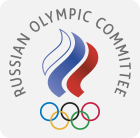


Below are two FIS Statements based on releases over the past week relating to anti-doping activities:
FIS Statement on CAS decision regarding Russian athletes
FIS fully respects the Court of Arbitration for Sport (CAS) decisions announced on 1st February 2018. The decisions upheld the sanctions of 11 athletes in relation to anti-doping rule violations which include three Russian cross-country skiers (Julia Ivanova, Yulia Chekaleva and Anastasia Dotsenko), while declaring that the other 28 athlete’s cases did not meet the threshold for the necessary level of evidence. These include cross-country skiers Evgeniy Belov, Alexander Bessmertnykh, Nikita Kriukov, Alexander Legkov, Natalia Matveeva, Alexey Petukhov, Evgenia Shapovalova, and Maxim Vylegzhanin
FIS will work together with all stakeholders to analyse the reasoned decisions very carefully once they are available.
Regarding the participation of athletes from Russia at the Olympic Winter Games PyeongChang 2018, the FIS refers to the statement of the IOC that the decision of the Executive Board (EB) of 5 December 2017 remains in place. This states that since the Russian Olympic Committee (ROC) is suspended, Russian athletes can participate in PyeongChang only on invitation of the IOC. The IOC has stated that, “The result of the CAS decision does not mean that athletes from the group of 28 will be invited to the Games. Not being sanctioned does not automatically confer the privilege of an invitation”
For future FIS competitions, including the World Cup, FIS has lifted the current provisional suspensions for the following athletes based on today’s decision: Evgeniy Belov, Alexander Bessmertnykh, Nikita Kriukov, Alexander Legkov, Natalia Matveeva, Alexey Petukhov, Evgenia Shapovalova, Maxim Vylegzhanin.
FIS Statement on article about Blood Doping
In response to the allegations in The Sunday Times and German television articles, the FIS strongly objects to the misrepresentation that there was and is a substantial number of skiers participating in the Olympic Winter Games «despite recording abnormal blood test scores (…) that suggested there is a significant incidence of doping».
A comprehensive longitudinal blood testing programme was introduced by FIS in 2001 with the blood values simultaneously provided to WADA for independent monitoring and scrutiny. FIS is applying the WADA Operating Guidelines for the athlete biologicalpassport (ABP) introduced in 2009, which clearly outline the processes to follow once an atypical passport is shown. It requires three external experts anonymous review in order to take a case forward. This has not been the case other than one case processed as a potential anti-doping rule violation (ADRV) by FIS which was confirmed by the FIS Doping Panel as such. Furthermore WADA has full access to the athletes biological passport and consequently supervises that FIS and other testing authorities bring a case forward according to the rules.
Prior to the WADA ABP when a urine test was required to determine blood doping, the blood values from the FIS blood testing programme have been analysed by appointed anti-doping experts. In fact Jim Stray Gundersen has not worked for FIS as was claimed; whereas he was permitted to conduct a project with his own methodology around 15 years ago. There have been two FIS Anti-Doping Experts since the inception of the professionally managed programme: the late Professor Bengt Saltin from 2001-2006 who handed over to Dr Rasmus Damsgaard in 2006.
FIS was not given an opportunity to review the data referring in the media articles published, but we can nevertheless state that the blood data collected from 2001-2009 which showed evaluated values was followed up with immediate urine testing, which was the only method to test for blood doping at this time. Additionally the data gathered were used as indicators for follow-up and target testing. There have been several official presentations at medical symposiums and publications in scientific journals based on the blood data collected from 2001-2006.
FIS is committed to doping-free sport and protecting the rights of the clean athletes. We are working very closely with WADA on a permanent basis, as well as the IOC here at the Olympic Winter Games and with further important anti-doping activities, including the establish Independent Testing Authority. FIS would like to apologize to the athletes for any compromise of their personal data which has occured.
Source: fis-ski.com





